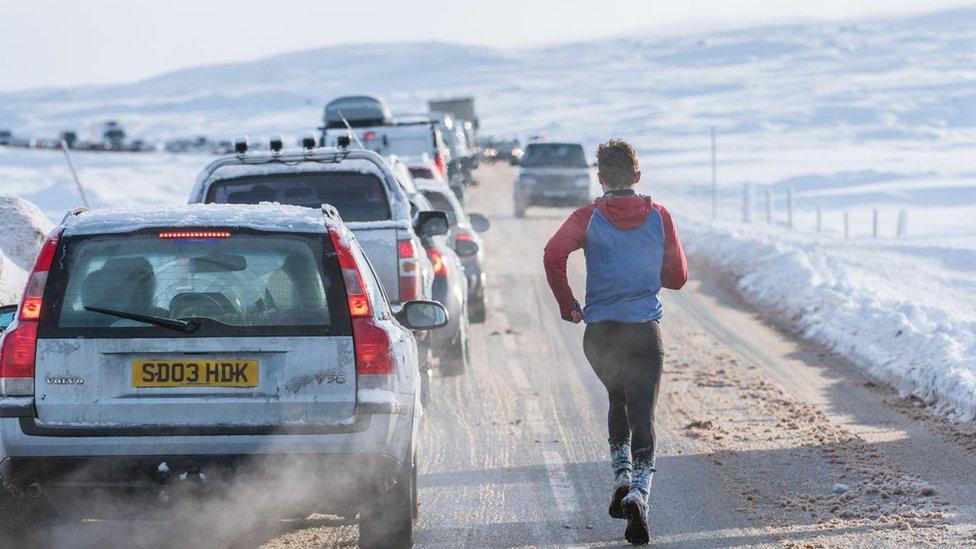Snow causes travel chaos across Scotland
- Published
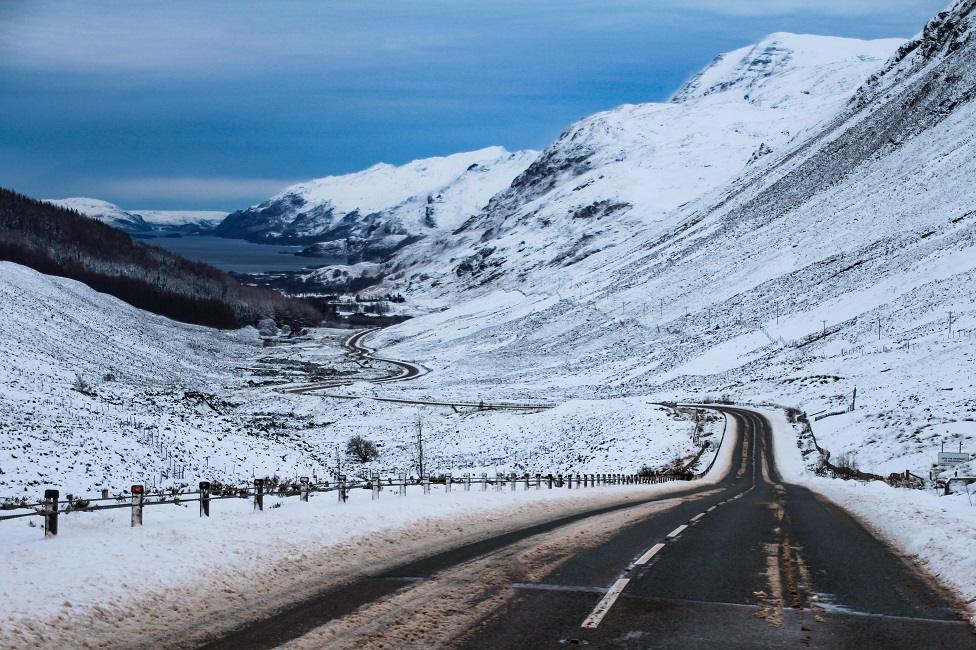
There has been heavy snowfall across large parts of the country, including in Kinlochewe
Heavy snow has caused travel chaos on roads in Scotland as motorists faced hazardous driving conditions as the weather deteriorated.
Five people were hurt in a two-car crash near the Glencoe Mountain Resort on the A82 on Sunday.
Local police asked drivers to avoid the area, who described the conditions in the area as "extremely poor".
A Met Office yellow weather warning, external for snow and ice was in force earlier in the day.
At the height of the problems at Glencoe, the road was closed while police dealt with the aftermath of the accident.
Insp Jen Valentine urged people in the ski resort and in homes and hotels in the area to stay put.
She said: "We have officers at the scene of the collision and the weather conditions in the area are extremely poor.
"We have closed the A82 while we deal with the collision and get those injured off to hospital and I would ask that drivers avoid the area in the meantime.
"For those who are currently at Glencoe Mountain Resort or at home, hotels or restaurants in the area I would urge them to stay where they are and stay safe and warm as there will potentially be a significant delay due to road conditions in getting people out of the area."
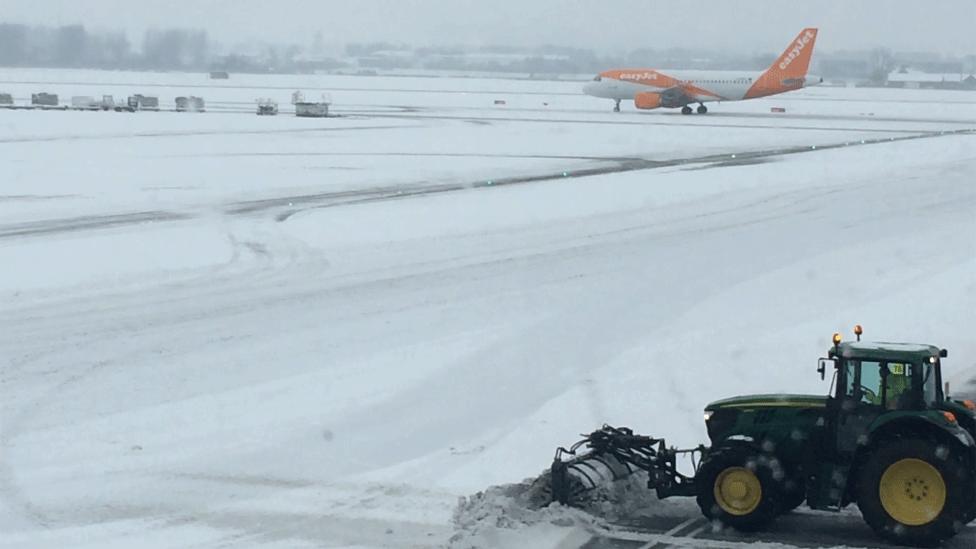
Glasgow Airport had to be closed while the runway was cleared
The road was later opened to traffic leaving the ski centre but it remained closed to all other vehicles as road conditions remained "challenging" with drifting snow.
It came a day after police reported six-mile queues of traffic around the ski resort, as people tried to get on the slopes.
Police said the snow gates on the A9 at Dalwhinnie had been closed due to the conditions.
And ScotRail tweeted that due to the conditions at Dalwhinnie, services between Inverness and Glasgow Queen Street and Inverness and Edinburgh may be delayed by up to 70 minutes.
Delays were also experienced on the A1 near Reston for more than four hours after a car transporter ended up across the road, blocking the road completely.
The road has since reopened.
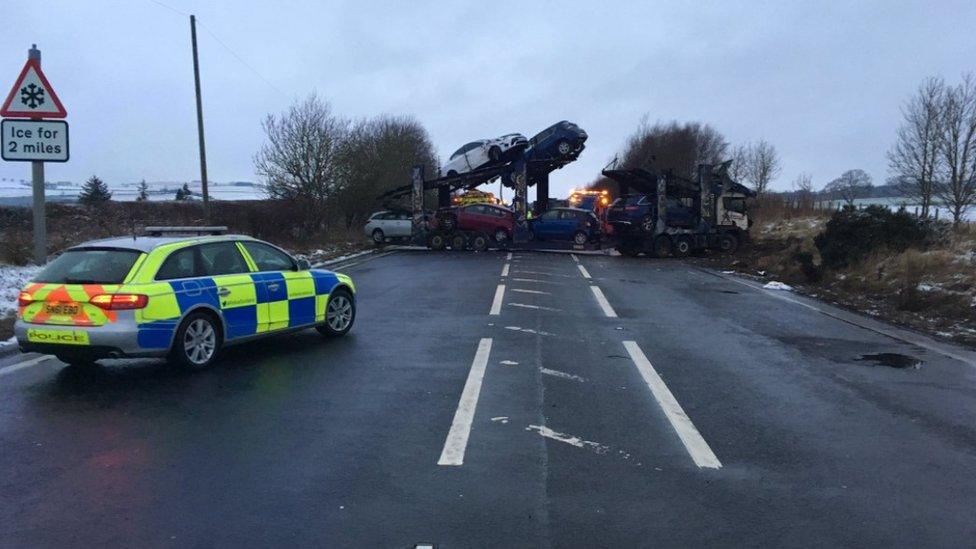
Delays were caused when a car transporter blocked the A1 at Reston
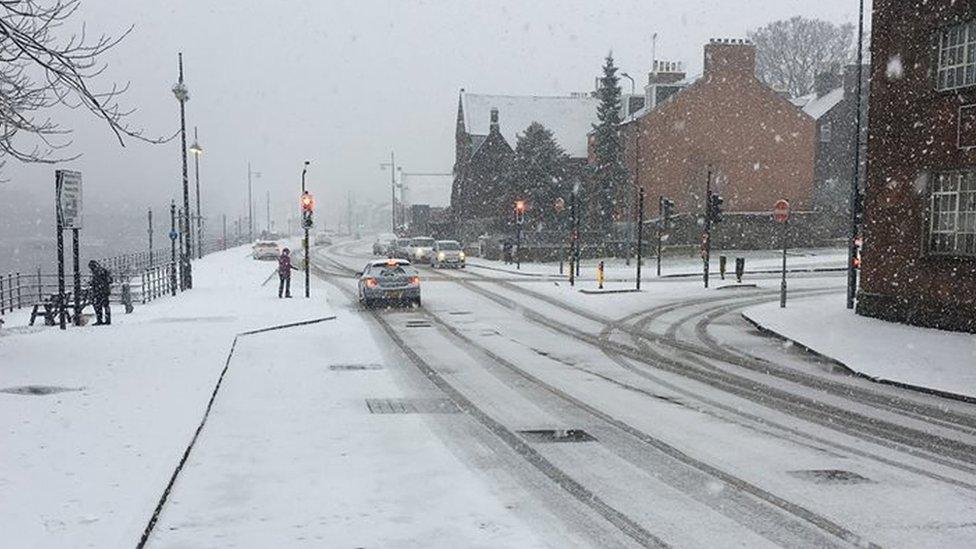
Motorists in Dumfries and Galloway were asked not to make unnecessary journeys
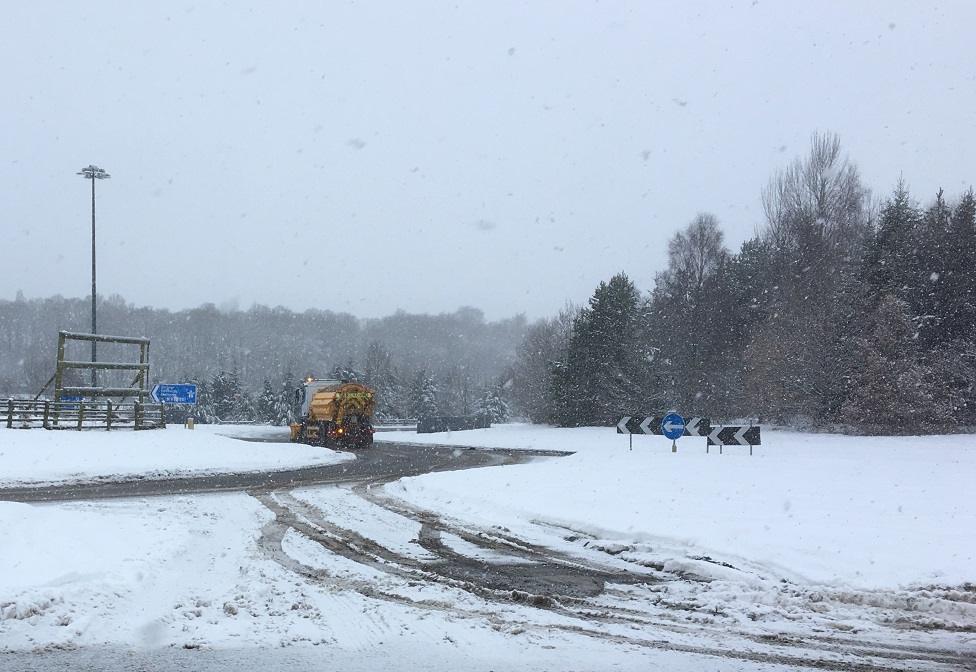
The roads around the Keir roundabout at Dunblane were gritted
Earlier drivers in the south-west were urged to "avoid unnecessary journeys" following a spate of road accidents.
Police said heavy snowfall across Dumfries and Galloway was causing problems on roads including the A75, which was blocked at the Glen for a short time.
Police later said it had been gritted and was "passable with care".
Heavy snow was also affecting the A76, the A701, the A709 and the A713 Castle Douglas - Ayr road, where there were a number of accidents.
In their latest statement, police in Dumfries said: "If you are having to drive, please slow down and drive to the conditions."
Traffic Scotland also urged drivers to check their routes before setting off and to ensure they were carrying emergency supplies in case they get stuck.
Police Scotland's control room said they were dealing with a number of weather-related incidents and road closures.
Glasgow Airport was closed for a short time while the runway was cleared of snow.
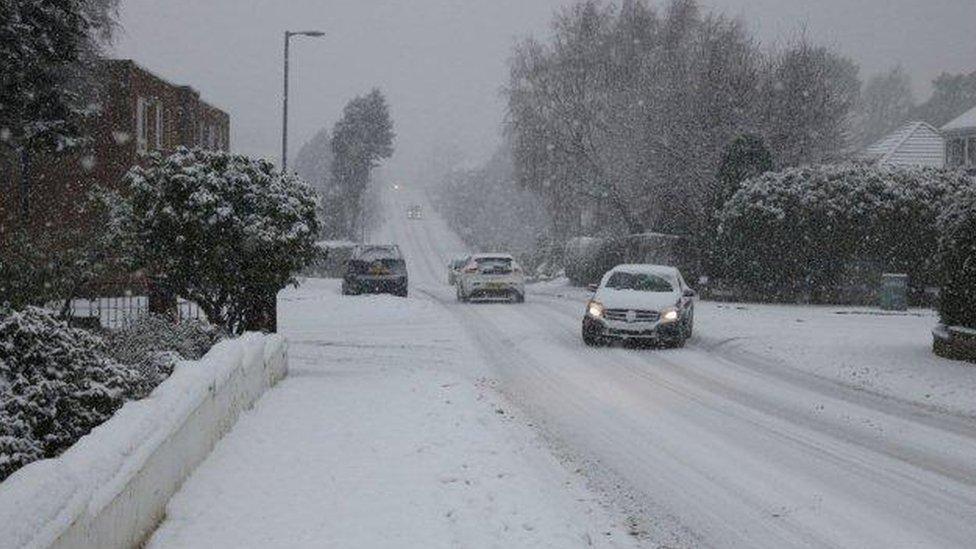
There was heavy snow in Newton Mearns at 13:00 on Sunday
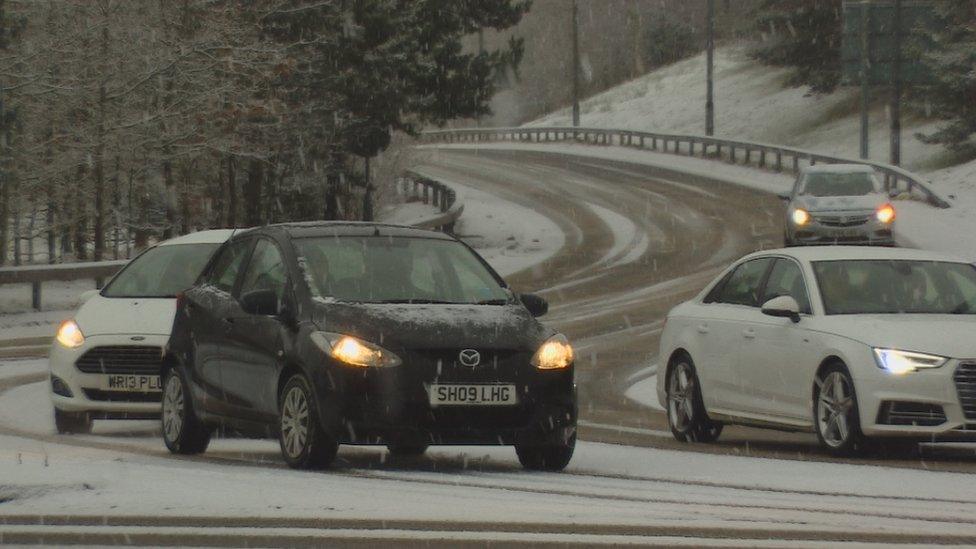
The snow has been affecting a number of roads in Scotland, including the M77
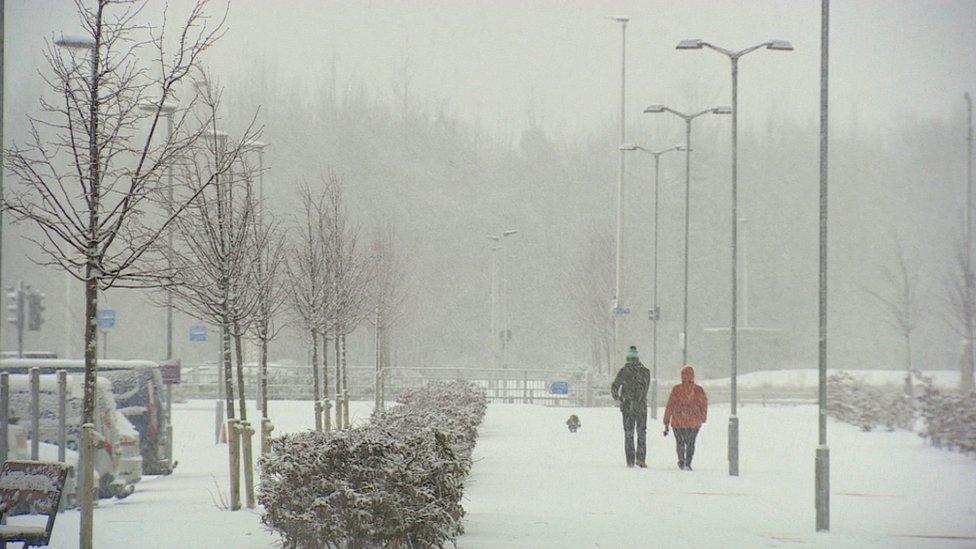
Heavy snow has also been falling in Glasgow
North Wales Police also warned of poor conditions on the roads due to snow and ice, particularly on routes in Snowdonia.
Meanwhile, the Mountain Road was closed on the Isle of Man due to snow.
In Northern Ireland, a yellow warning of ice was in force until 09:00 on Sunday, while a yellow warning of rain runs until 15:00.
The yellow "be aware" warning covers much of inland Scotland, and was later extended to cover the north-west Highlands and parts of the Western Isles.
Large swathes of England may also be affected, with areas as far south as Hertfordshire, Essex and Suffolk covered by the warning.
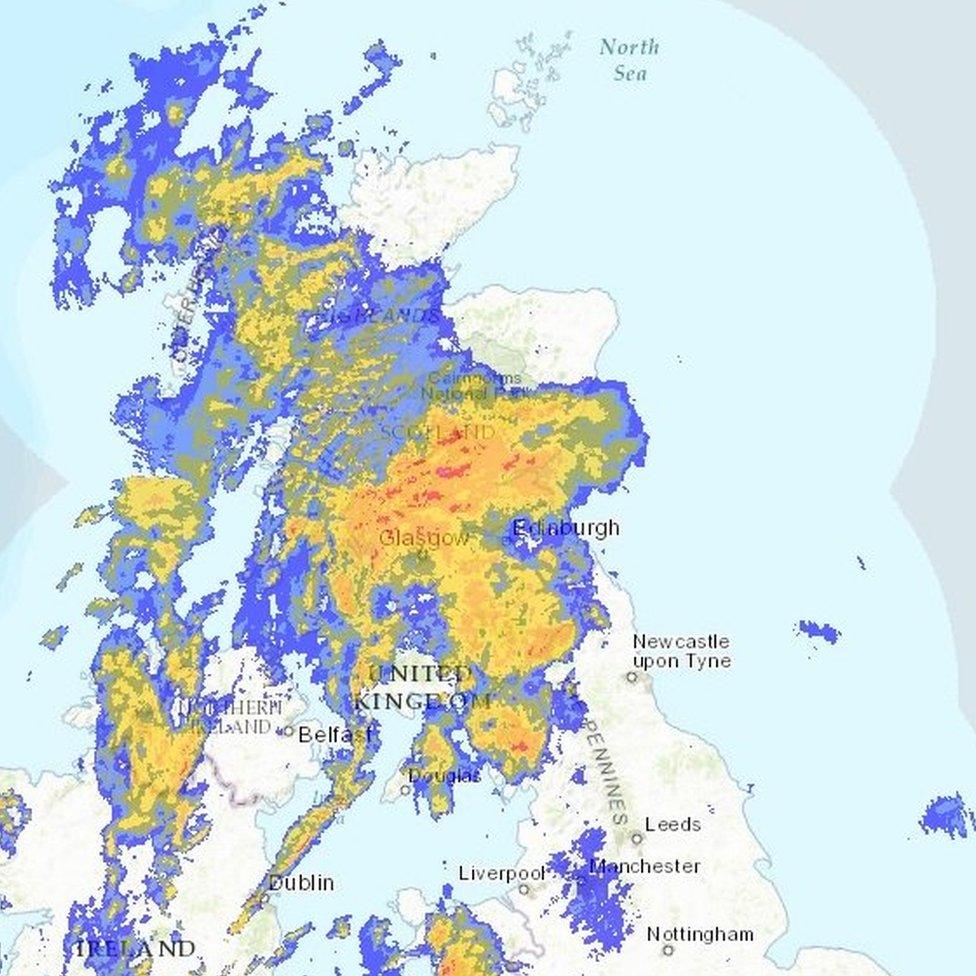
The radar shows snow falling on large parts of central and southern Scotland and Cumbria at 11:00.
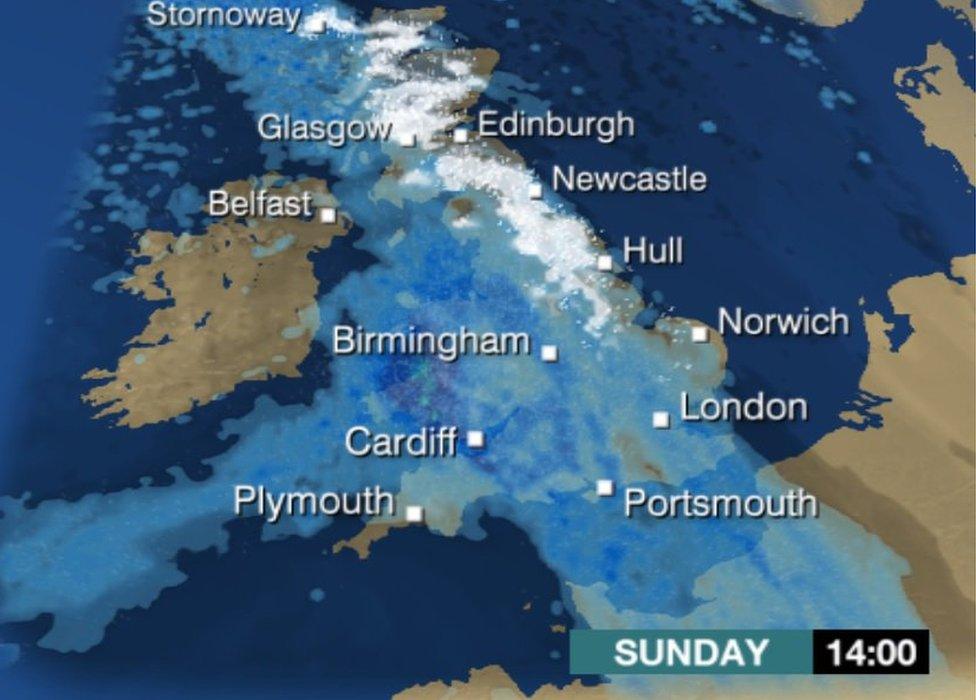
The snow is expected to turn to rain later on Sunday
Saturday night saw the coldest temperature recorded in the UK since February 14 2016, when -14.1C was recorded at Braemar.
Despite the frigid temperatures in the far north, the mercury rose to 11C in the far south west of England.
Met Office forecaster Steven Keate said the near 20C difference, caused as warmer air moves in, was "pretty unusual for the UK".
"The broad theme is it is turning milder from the west, but before we get there some snow will fall," he said.

What the weather warning colours mean
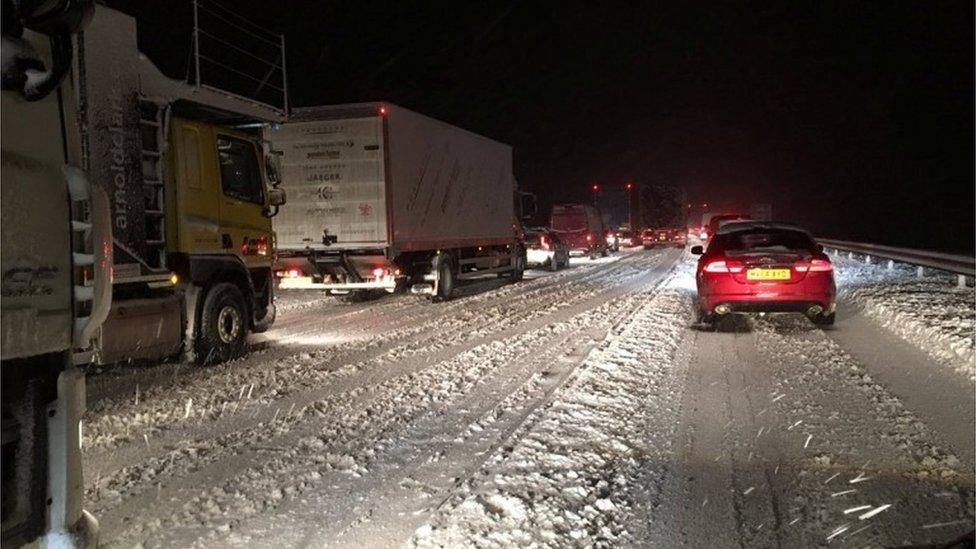
Hundreds of vehicles were stuck in traffic on the M74 on Tuesday night
Yellow: Severe weather expected. Yellow means you should plan ahead thinking about possible travel delays, or the disruption of your day-to-day activities.
Amber: Be prepared for disruption. There is an increased likelihood of bad weather affecting you, which could potentially disrupt your plans and possibly cause travel delays, road and rail closures, interruption to power and the potential risk to life and property.
Red: Extreme weather is expected. Red means you should take action now to keep yourself and others safe from the impact of the weather. Widespread damage, travel and power disruption and risk to life is likely. You must avoid dangerous areas and follow the advice of the emergency services and local authorities.

- Published20 January 2018
